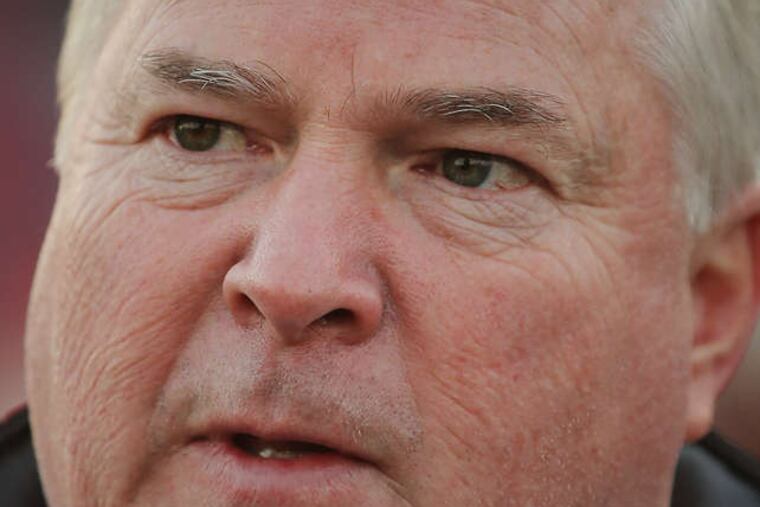Ferguson chief resigns in wake of scathing federal report
Ferguson Police Chief Tom Jackson, who became the focus of national outrage last summer after a white police officer shot and killed a black teenager in the Missouri town, resigned Wednesday in response to federal findings of widespread racial bias and abuse under his command.

Ferguson Police Chief Tom Jackson, who became the focus of national outrage last summer after a white police officer shot and killed a black teenager in the Missouri town, resigned Wednesday in response to federal findings of widespread racial bias and abuse under his command.
The resignation, sought for months by leaders in the city's black community and national civil-rights activists, will take effect March 19, the city said in a statement. It marks the third departure by a high-ranking official in the embattled St. Louis suburb in three days.
Ferguson City Manager John Shaw, the town's chief executive, resigned Tuesday by "mutual ... agreement" with the seven-member City Council. On Monday, the Missouri Supreme Court announced that a new judge would take over local court cases after municipal judge Ronald Brockmeyer resigned.
All three men were the targets of withering criticism in a long-awaited report on the Aug. 9 shooting of 18-year-old Michael Brown, an event that sparked months of sometimes violent protests in Ferguson and across the nation. That report, issued last week by the U.S. Justice Department, cleared the white police officer, Darren Wilson, of wrongdoing. But it lacerated the local police and court system for creating what Attorney General Eric H. Holder Jr. called "a highly toxic environment, defined by mistrust and resentment, stoked by years of bad feelings, and spurred by illegal and misguided practices."
The Justice Department did not directly fault Jackson, noting that policy changes he proposed were "routinely ignored." But last weekend, amid renewed calls for his ouster, Jackson spoke with Ferguson Mayor James Knowles and concluded that it was time to step down.
In a resignation letter, obtained by the St. Louis Post-Dispatch, Jackson said his decision came with "profound sadness."
In an evening news conference, Knowles praised Jackson, calling him an "honorable man" who chose to step aside out of love for the city. But Knowles also vowed that Ferguson would address the full litany of abuses detailed by Justice Department investigators, including the disproportionate arrest of black residents for minor offenses, to ward off more serious federal action against the police department.
"The city of Ferguson looks to become an example of how a community can move forward in the face of adversity. We are committed to keeping our police department," Knowles said.
Asked whether he, too, planned to resign, Knowles said no.
"Someone needs to run the ship," he said, as the city enters into negotiations over its future with Justice Department officials.
The shooting of Brown - a teenager who had just robbed a cigar store but was walking unarmed down a city street on a hot summer day - touched off a national conversation about race and policing.
In its report, the Justice Department concluded that Wilson was probably justified in killing Brown, who charged the officer, causing him to fear for his safety.
But Justice Department investigators also concluded that many of the complaints of local residents and protesters about racially biased policing were valid.
When the Justice Department finds evidence of discriminatory or unconstitutional policing practices, the targeted city and federal officials enter a negotiation period. The goal of that period is to craft a "consent decree," in which the city agrees to make reforms that can be enforced in court. That often includes the installation of an independent monitor.
Last week, Holder said the Justice Department is "prepared to use all the powers that we have" to ensure change in Ferguson. In his answer to a question from a reporter about whether that includes dismantling the police force, Holder replied, "If that's what's necessary, we're prepared to do that."
Negotiations over the future of the Ferguson force have yet to begin, and the timeline is uncertain, law enforcement officials said. Local observers said Knowles and other city officials appeared to have forced out the police chief and other Justice Department targets in hopes of avoiding the most extreme punishment.